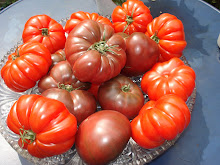Small children often fear vegetables, surviving on a diet of pasta, rice and ice cream. But this is just a normal developmental phase, which later gives way to curiosity and experimentation. Legumophobia in adults, however, is a serious condition. A threat to long term health, it also signals deep and unresolved trauma, extending far beyond the "overcooked Brussel sprouts" nightmare we all share.
Common Excuses for not eating vegetables
1. Vegetables are too expensive
2. Vegetables are hard to prepare
3. Vegetables make me fart
4. Hitler was a vegetarian.
1. Vegetables are too expensive.
This is a lie!
Vegetables are not expensive.
Fresh carrots, pumpkins, sweet potatoes, winter squash, cabbages, potatoes, cauliflower and many other delicious and nutritious vegetables cost less per pound than just about any other food except rice or pasta. In season.
I suspect that the "vegetables are too expensive" mantra originated in the creative departments of advertisers of Tasty Hydroginated Chemical Sugar Craps. What better method than to convince people they have no choice! Or to make it a question of identity. Only top hat wearing rich exploiters consort with vegetables! These luxuries not for honest people!
And yet, pound per pound, veggies cost less than most items we all buy: A sixpack of diet coke? Nope? A bag of chips. A duo dingdongs. A bottle of vodka. A gallon of gas. A packet of cigarettes. A snort of cocaine.
The trick with vegetables is that price and quality fluctuate according to availability. Buy when fresh and cheap and eat immediately. It will cost less and taste better. And, what the heck, it's even good for you.
The more wonderful, easy recipes you have at you fingertips, the easier it is to take advantage of vegetables' changing prices. Brocoli too expensive this week? Buy cauliflower or carrots. Tomatoes just doubled? Switch to carrots or zucchini. Artichokes and avocados looking ratty and expensive? How about some sweet potatoes? Prices vary according to where you live, what the weather's like, transportation and distribution systems and, of course, the time of year.
Unless you're pregnant with insatiable cravings for a particular veggie which MUST be satisfied, you'll benefit by being flexible. If you can't find a recipe you like for it in this book, google it. You'll certainly find something on the internet. And you'll add great tastes and colors to your family meals. At very little cost.
2. Vegetables are hard to prepare.
Granted, eating dry cereal from an open box with your fingers is easier. As is popping a prepackaged thing for one person in the microwave. Ding!
But veggies aren't that much more complicated. And you can't beat the variety.
Vegetables can be served raw, steamed, fried, baked, mashed, pureed, in casseroles with cheese and sour cream, as a lasagne, in hot, mouthwatering soups, in cool refreshing drinks, in quiches, tarts and pies, with dips, on the side, as a main course or even, as with pumpkin pie, for dessert. Vegetables can even be dressed up to look like meats, (though I personally view this as a time-consuming perversion).
The point is, they're easy.
3. Vegetables make me fart.
Yes, well. I could tell you a tragic story about some particularly delicious cabbage piroshki that once got me banned from a library, but there are a couple of really fantastic cabbage recipes in this book that you really must try.* So do yourself a favor. Pace yourself. And share.
4. Hitler was a vegetarian.
This is, by the way, the only valid excuse for rejecting vegetables.












